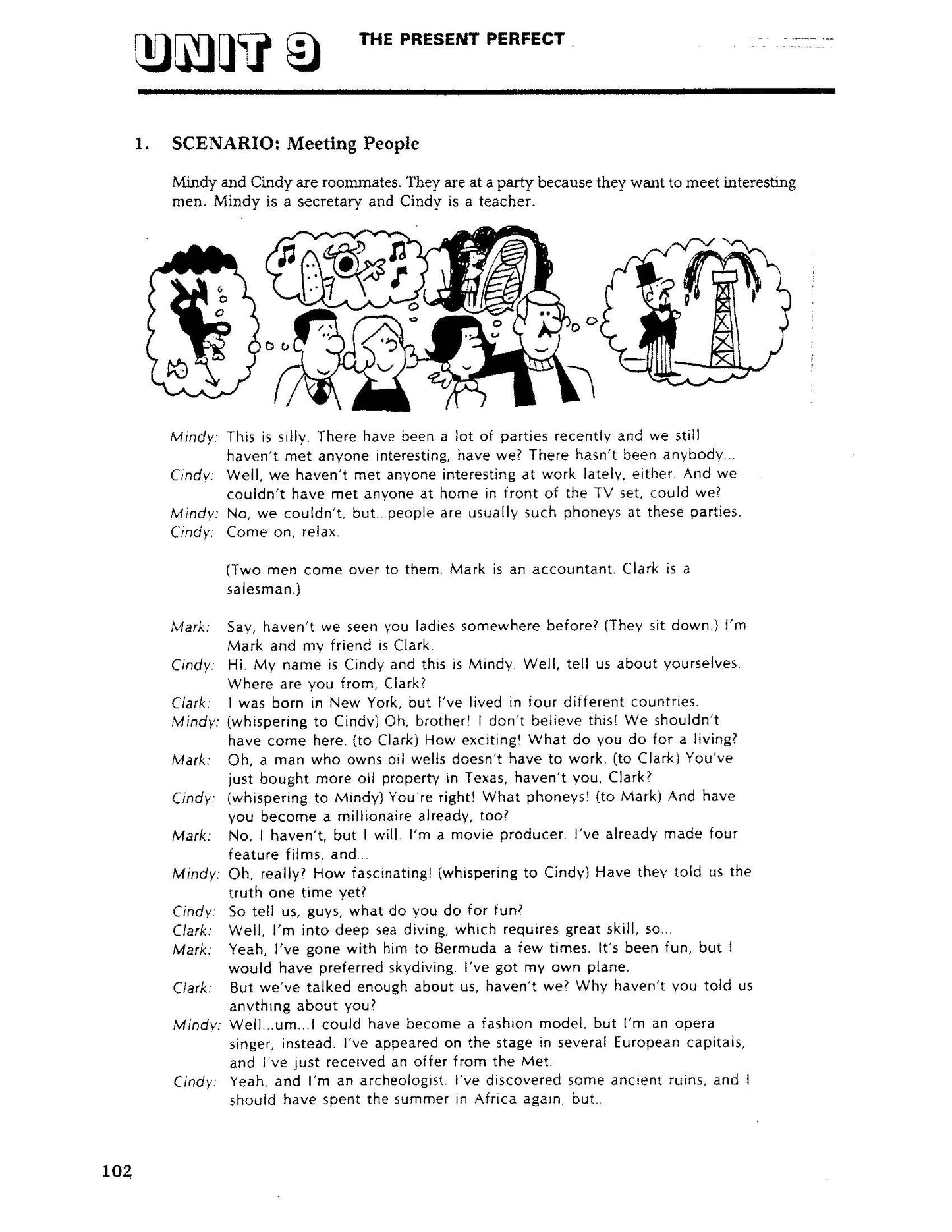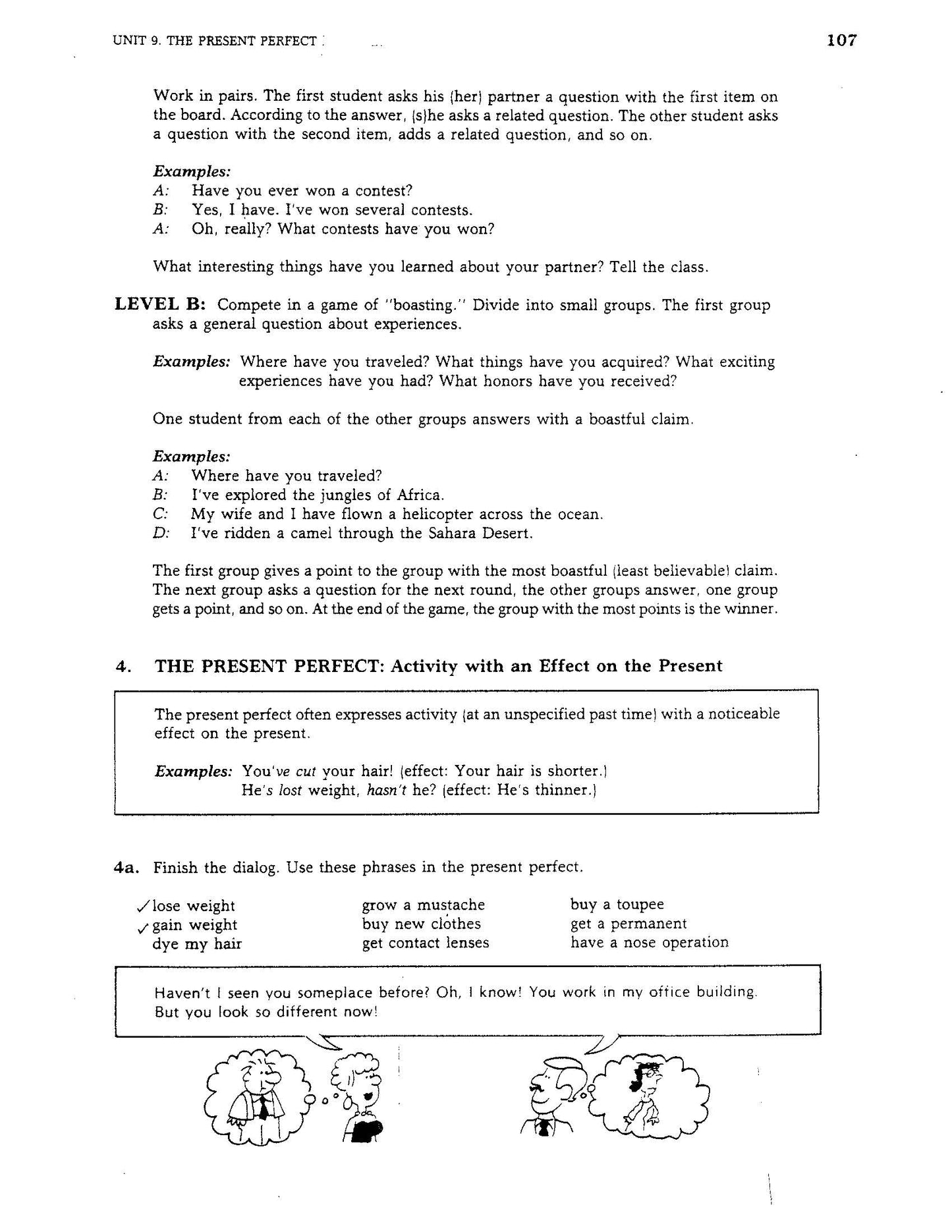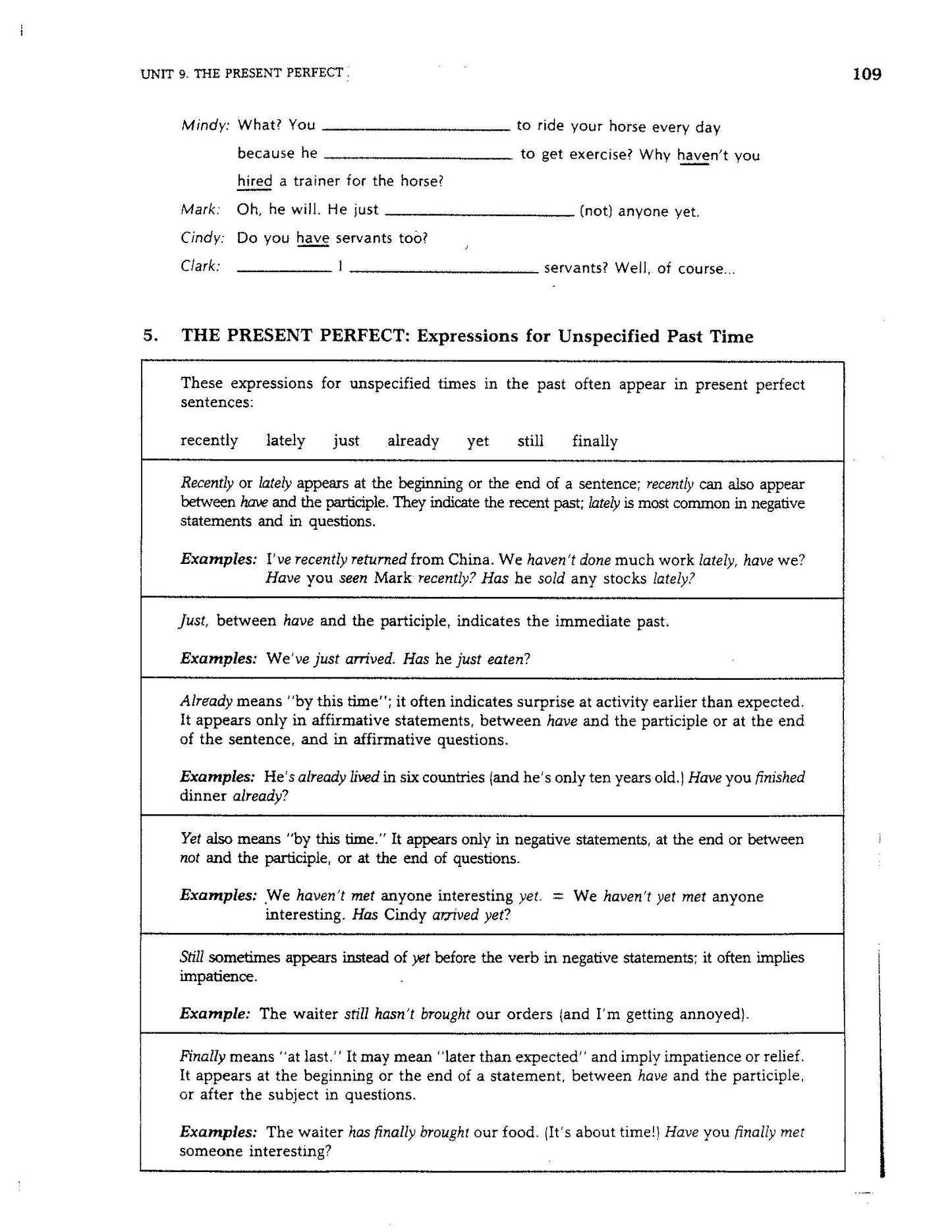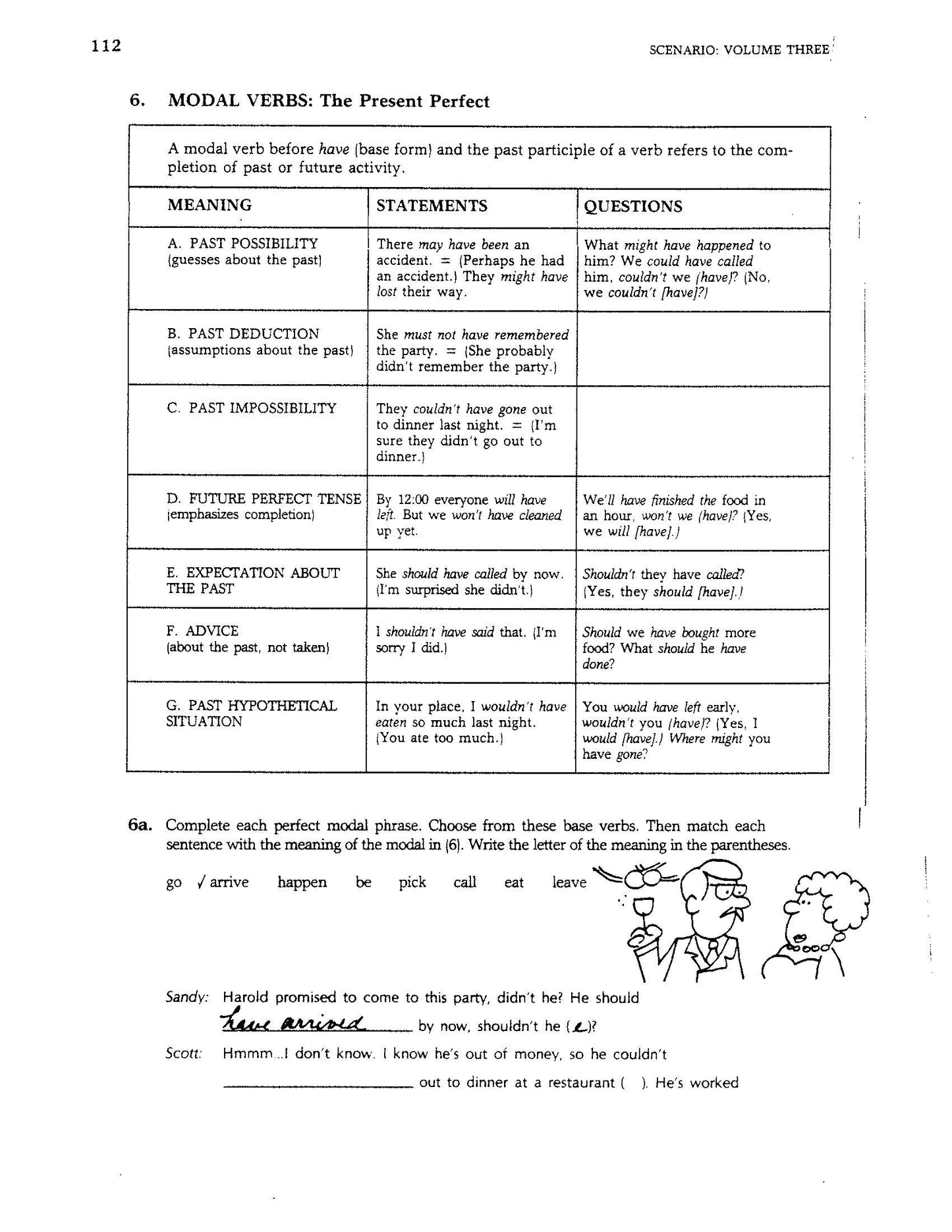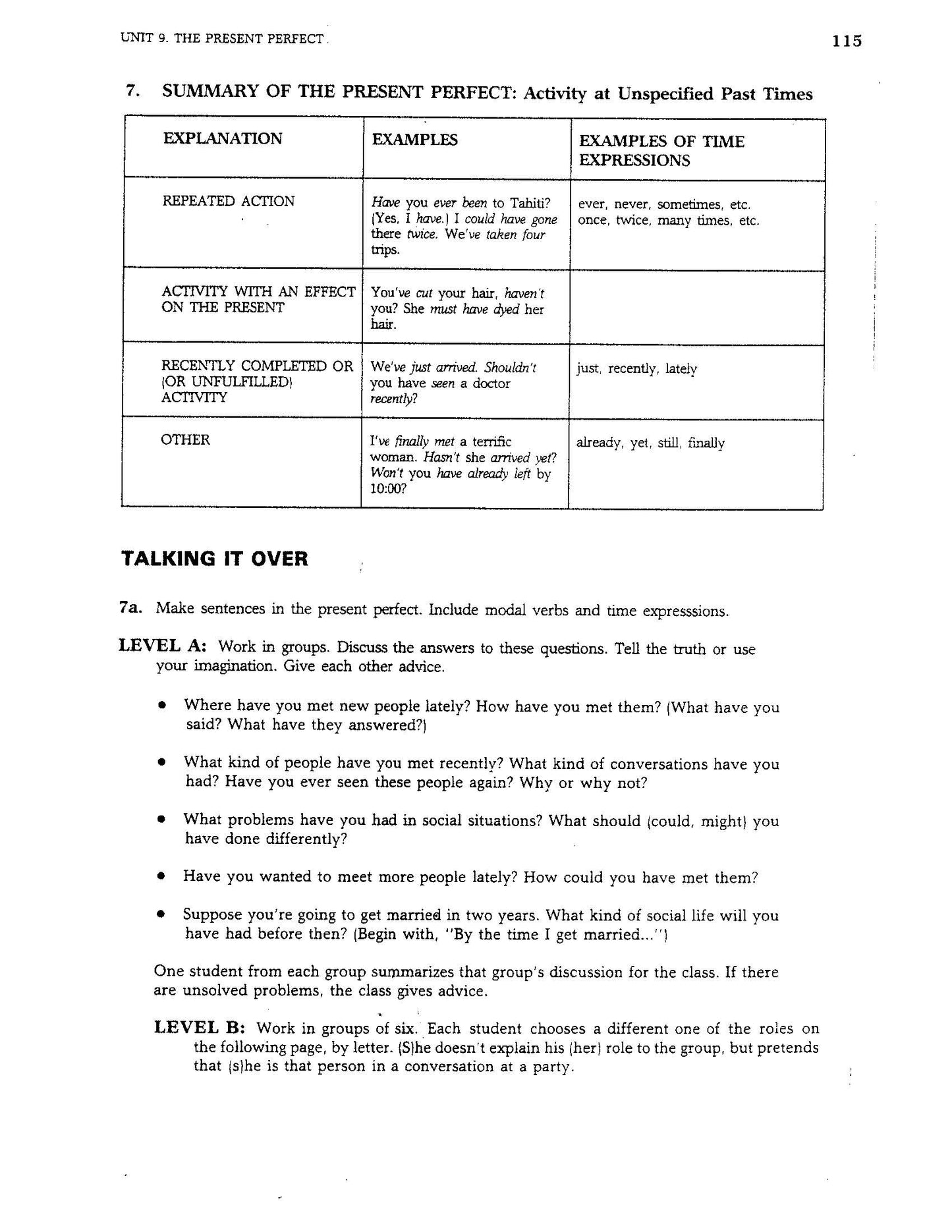1
/
of
5
Work/Life English
D-13.07 Use the Present Perfect with Adverbs in Various Meanings
D-13.07 Use the Present Perfect with Adverbs in Various Meanings
Regular price
$4.00 USD
Regular price
Sale price
$4.00 USD
Unit price
/
per
Unit 9: The Present Perfect (“Meeting People”) of the Original Scenario, Volume Three: English Grammar in Context, pages 102-116
15 pages
Who It’s For: (Self-)Teachers & Helpers at Advancing Levels Wanting More Analysis of the Present Perfect, Including Modal-Verb Phrasing with Have + Past Participles
Why It’s Useful: Grammar Units at different levels of elaboration, especially those on related topics within a series, have already covered the essentials—like Forms, Sentence Patterns, and Meanings of Present Perfect Verb Phrasing. After initial presentation, subsequent grammatical material has finally succeeded in exhibiting new and distinct organization and content. Meeting new people at parties, the “main characters” of this highly contextualized Advanced Unit 9 have used mostly Present Perfect structures (without Continuous forms) to get acquainted—by communicating about past Repeated Action, Activity with an Effect on the Present, Recently Completed or Unfulfilled Activity, and more. They include Complex Modal Verb Phrasing—for Past (Im)Possibility, Deduction, Expectation, etc. If you’all haven’t learned all of this yet, you’ve just been given an opportunity to do so by downloading this vintage segment.
What You’ll Do:
[1] In the page 102 Scenario: Meeting People, notice how the four speakers use Present Perfect Forms & Patterns to (mis)represent themselves to people they’ve just met. Have you reviewed and practiced how to express Repeated Action or Activity Influencing the Present yet? Have you just noticed the many one-word adverbs (like recently, lately, just, still, finally, etc.) to insert into your speech for clarification? If you haven’t, you might have missed an opportunity to consider or choose your own style for getting acquainted with strangers.
[2] On page 108, you must have refined your use of the phrase have got(ten) (to). On page 112, you should have gotten ways to include Past (Im)Possibility & Deduction; the Future Perfect Tense; Expectation about the Past; Advice Not Taken; and/or Past Hypothetical Situations into your repertoire.
[3] As soon as you’ve “Talked It Over” and “Written It Down,” you will have incorporated all that you’ve learned about Present Perfect Time into your ability to exchange (true or fictitious) information about yourselves and others.
Couldn't load pickup availability
